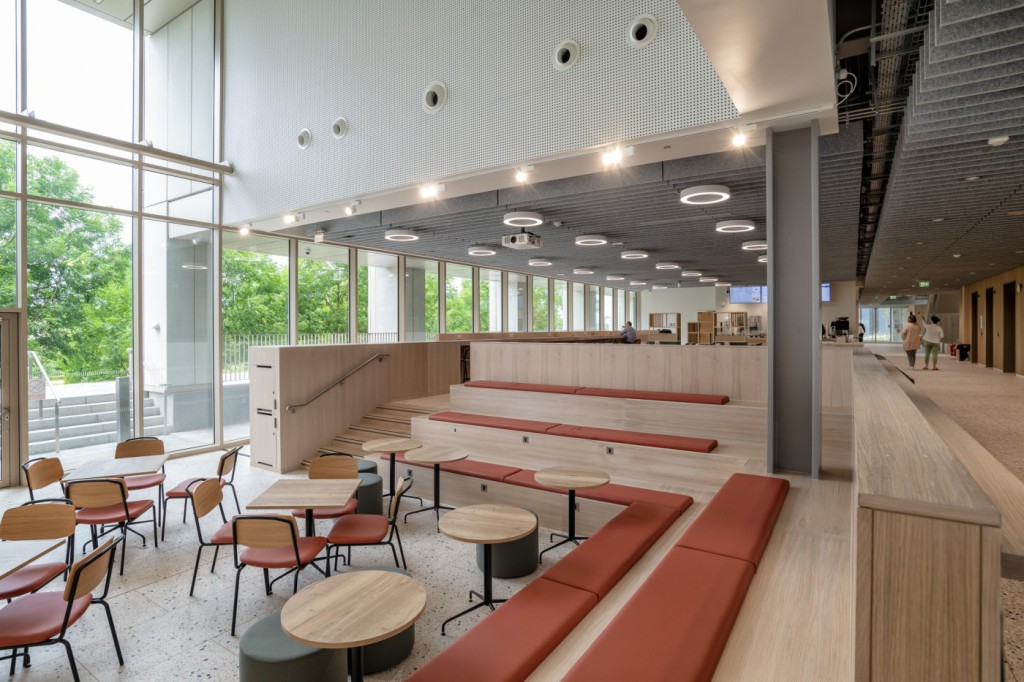Lighting the best medicine

The University of Edinburgh’s Usher Building at Edinburgh BioQuarter’s health innovation district provided TRILUX with the perfect opportunity to showcase its innovative lighting and control solutions.
Located within the University of Edinburgh’s College of Medicine and Veterinary Medicine, the Usher Institute aims to transform health in society by working with people, populations and data.
The objective was to create an environment conducive to health research and collaboration, utilising as few manufacturers as possible.
Delivered by Leon Gray, a TRILUX distributor, and installed by EMTEC Group with lighting design by Ainsley Cramer, the lighting scheme consisted of 400 custom-designed Sonnos downlights featuring a bronze and black RAL finish; these downlights blended perfectly with the building’s architectural metal finishes. Over 600 Solvan Flows, 300 Amatris, and numerous LED linear runs were installed, providing uniform and efficient lighting throughout the facility.
However, the star of the show was the LiveLink controls system, which offers numerous benefits, including semi-automatic lighting with absence detection, multiple lighting scenes for dramatic effects in event spaces, push-button controls for on/off and dimming, simplified partition controls for flexible space usage, remote access for modifications and service checks, daylight controls with window row dimming and extensive DALI networks across the building for comprehensive lighting management.







